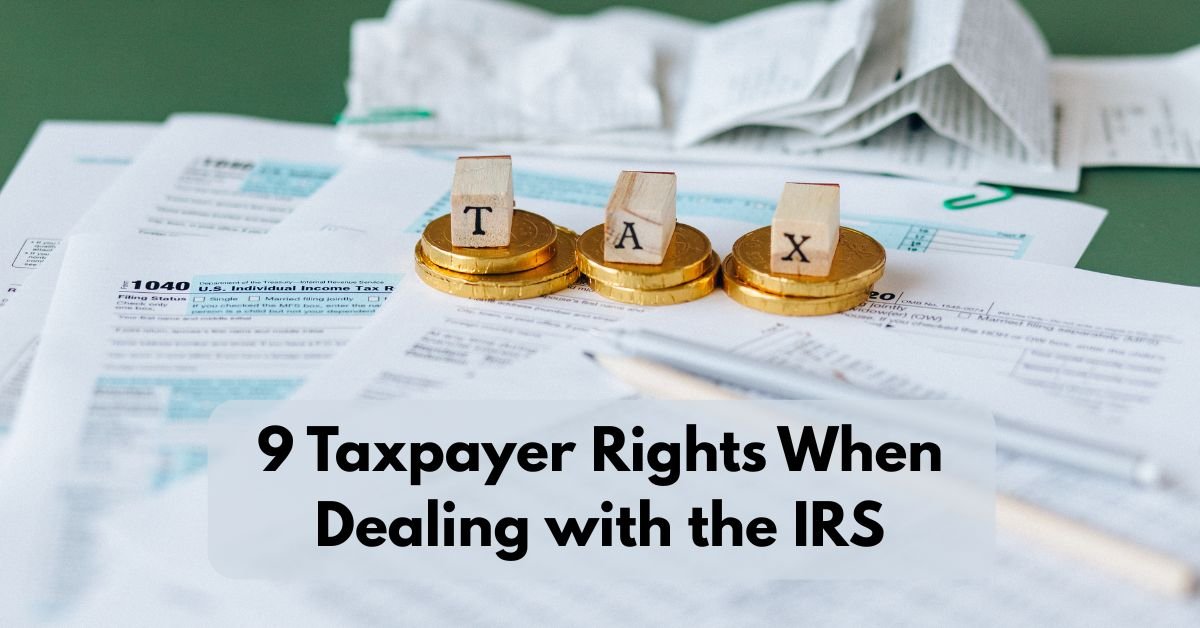The IRS has a set of rules called the Taxpayer Bill of Rights and these rights are made to make sure you are treated equally, given clear information and not misled. Whether it’s about paying taxes, handling an audit and responding to a letter from the IRS, knowing your rights can give you peace of mind and help you stand your ground. In this article, we will break down the 9 taxpayer rights when dealing with the IRS so you understand what protections you have and how to use them.
The Right to Clear Information from the IRS
You have the right to clear and easy to understand information from the IRS. This means getting clear explanations about tax forms, notices, bills and deadlines without any confusion. The IRS must provide information that helps you understand your obligations and your options so you can make the right decisions. Clear communication helps you avoid mistakes and protects you from unnecessary penalties.
The Right to Quality Service
Every taxpayer deserves to be treated with respect when dealing with the IRS. This means you should get clear answers, time to time help and polite communication every step of the way. If you feel that you have been treated unfairly and spoken to in a disrespectful way, you have the right to ask for a supervisor. At the end of the day, you deserve good service just like you would from any other organization.
The Right to Pay No More Than the Correct Amount of Tax
You should never have to pay more in taxes than what you legally owe. This right protects you from being overcharged and ensures you get money back if you have overpaid. The IRS can’t ask you to pay beyond your legal tax amount. If you’re unsure whether you’re paying the correct amount, our Accounting and Tax Compliance services can help review your filings and keep everything accurate. This right makes sure your tax bill is fair and precise every time.
The Right to Fair Consideration
You have the right to challenge the IRS if you don’t agree with their decision. This means you can provide documents, explanation or other information and the IRS must take them into account before making a decision. They can’t ignore what you provide, you deserve to be treated fairly in the process.
The Right to Appeal an IRS Decision in an Independent Forum
The right to appeal an IRS decision in an independent forum gives every taxpayer opportunity to challenge an IRS action they believe is unfair or incorrect. If you disagree with the IRS , such as an audit result and rejected payment arrangement, you have all the right to request a review by the IRS office of appeals, which functions independently from the agency’s enforcement divisions. This process allows you to present your case, provide supporting evidence and have an impartial review of the situation. If the appeals office does not solve your matter in your favor so you can take your case to federal court. This right is very important because it ensures that taxpayers are treated fairly. To increase your chances of success, avoid common pitfalls by reading our guide on 10 Common Mistakes to Avoid in Tax Representation
The Right to Clear Deadlines
The right to clear deadlines means you should always know how much time you have and when you have to respond to IRS requests and decisions, as well as how long the IRS has to take certain actions. For example, you should be clearly informed about the deadline to file a return, pay a tax bill and appeal an IRS decision.
The Right to Confidentiality
The right to confidentiality means your personal and financial information should stay private. The IRS does not share your personal tax details with anyone without your permission. This right protects you by making sure your sensitive information stays secure and is only used for the purpose of handling your taxes.
You have the right to challenge the IRS if you don’t agree with their decision. This means you can provide documents, explanations, or other information and the IRS must take them into account before making a decision. They can’t ignore what you provide—you deserve to be treated fairly in the process.
If your challenge involves penalties, you may be eligible to reduce them—learn more about how to qualify for IRS penalty abatement before submitting your case.
The Right to have Someone Represent You
The right to have someone represent you means you don’t have to face the IRS alone. You can choose a professional such as an attorney, CPA, or enrolled agent to handle your case and speak on your behalf. If you can’t afford professional help, you may be able to get free or low-cost assistance from a low-income taxpayer clinic. If you’re looking for trusted guidance, our IRS Representation Service is here to support you every step of the way. This right ensures that you have the expert support and protection you need when dealing with the IRS.
Final Thoughts
Knowing your rights gives you confidence throughout the process. The taxpayer bill of rights was specially created to protect you and make sure the IRS treats you fairly every step of the way. These rights give you the ability to ask questions, challenge decisions and keep your information very private. The more you understand your rights, the more confidence you will have in managing your tax situation.
Need Help Navigating Your Tax Rights?
Understanding your rights is the first step, but handling IRS matters can still be complex and stressful. Whether you’re facing an audit, disputing a tax bill, or need expert guidance on tax compliance, our team at World Tax & Accounting is here to help you protect your rights and achieve the best outcome.
📞 Call us today at (888) 482-0284 or
📩 Book a free consultation now: Schedule Your Consultation


